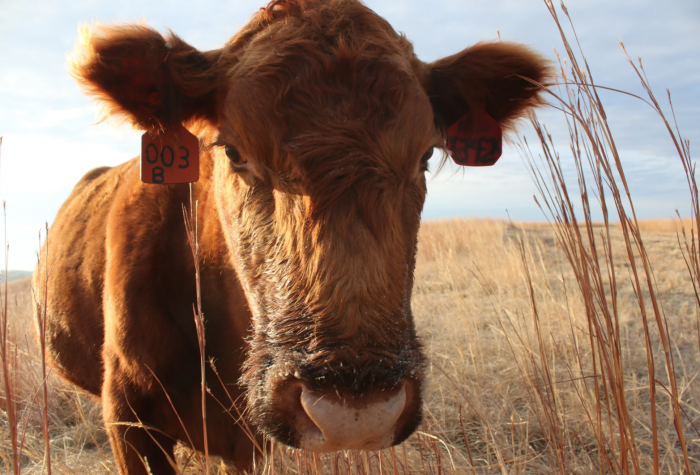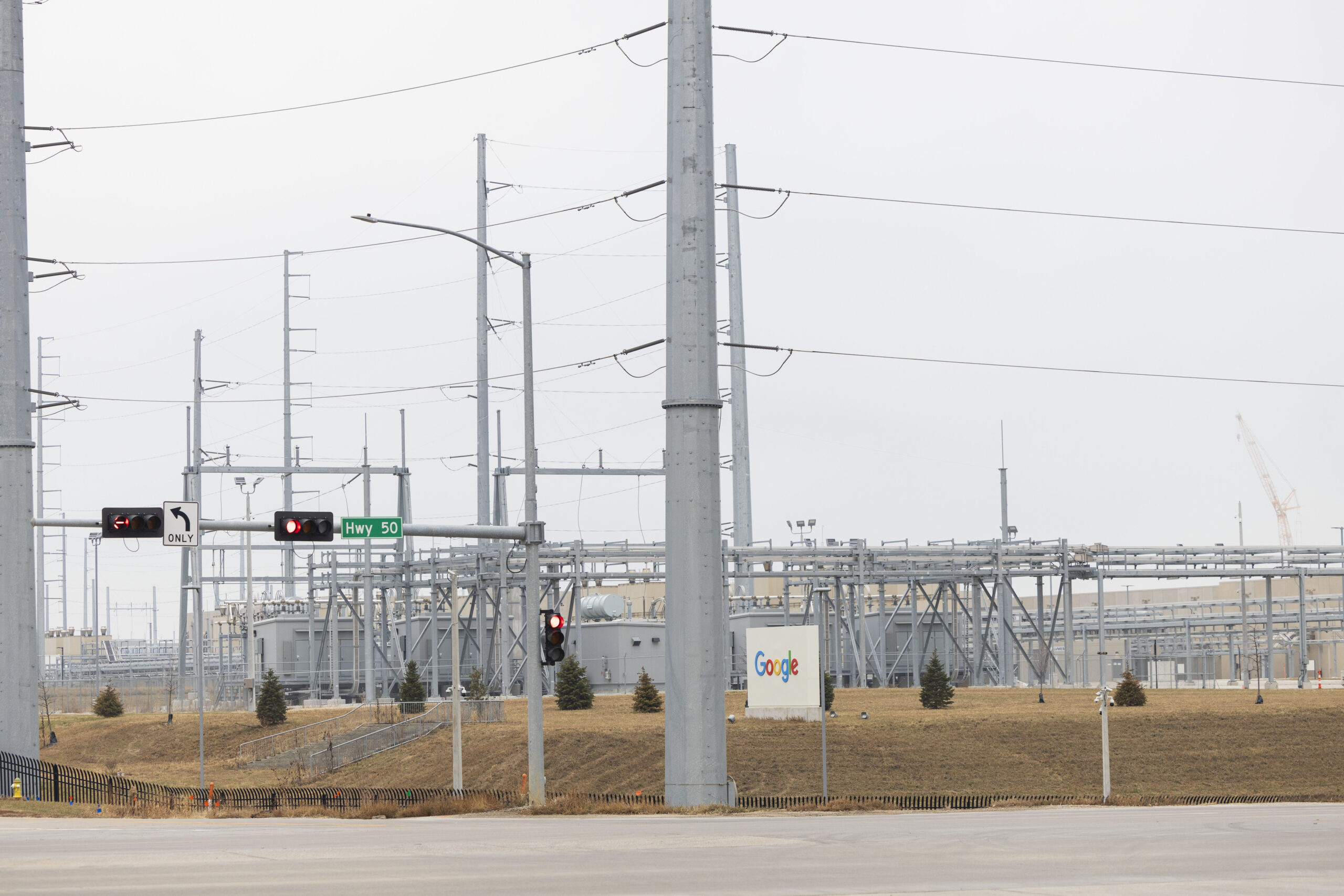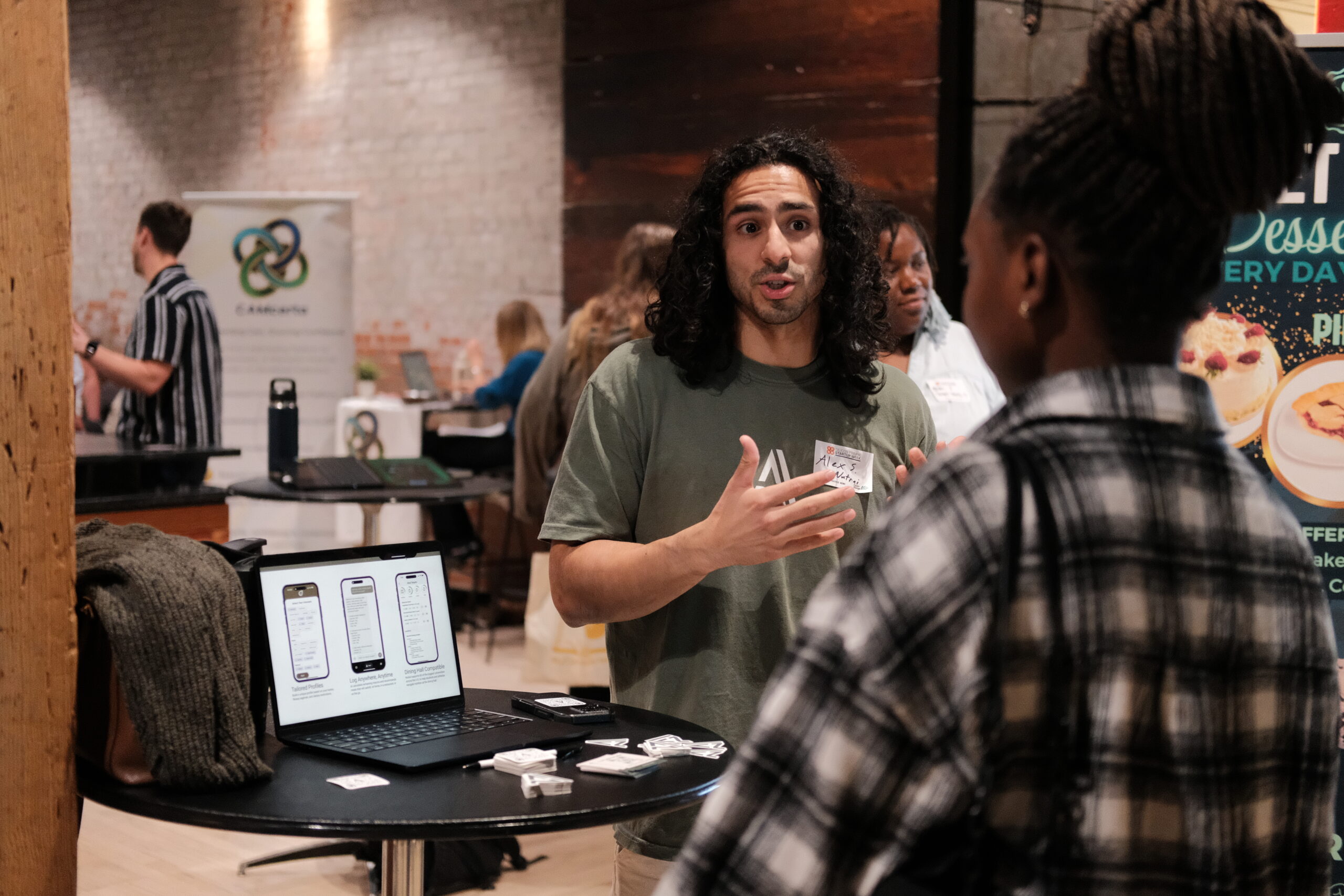April 13 was a big day for 22-year-old startup founder Jack Keating.
The Center for Entrepreneurship at the University of Nebraska–Lincoln College of Business had wrapped up its New Venture Competition, and Keating took home first prize: a $25,000 grant from the Nebraska Department of Economic Development to assist his new company, Corral Technologies, in developing models to accurately test their products.
Keating, a mechanical engineering major from the University of Nebraska–Lincoln in his senior year, is bringing to life an agtech business he originally dreamed of while growing up in the small town of Atkinson, Neb.
Corral Technologies uses virtual fencing technology to allow ranchers to rotate their cattle’s grazing patterns from their cell phone, computer or tablet. Keating’s goal is to utilize GPS to connect satellites with collars worn by the cattle, which will then show up on a map inside an app for the rancher and help them move their cattle remotely.
Keating, however, considers this new way of cattle rotational grazing to be more than just convenient for his prospective clients; it also assists in pasture utilization, or the ongoing balance between pasture production and removal.
Keating noted that research shows moving cattle to new pastures multiple times a day can increase pasture utilization by 10-15%. But this can be time consuming if a rancher has to relocate their fencing each time. Using virtual fences, Corral’s software will help ranchers increase sustainability and save time in the process.
“With increased pasture utilization, you’ll be able to carry more cows,” Keating said. That means (potentially) more money for ranchers who are already struggling due to a number of factors, including the COVID-19 pandemic.
Keating’s long-term goal is for his new fencing technology to be used by ranches all over the Midwest, and eventually, the world. Nevertheless, his ambition is rooted in direct experience.
Growing up ranching with his dad, Keating noticed that cattle fencing was tedious. He saw no better options than to dig the posts by hand or with an auger. But then the germ of a business idea began to sprout.
“There’s gotta be a better way to do this. We’ve put rovers on Mars,” Keating said, reflecting on the conversations with his dad that would eventually spark Corral Technologies.
“Finally, one day, my dad said, ‘Wouldn’t it be nice if we could just put collars on these cows like a dog’s fence?’” Keating remembered. “And I was like, ‘Yeah that’d be sweet.’ So I started researching what would be needed for it and got to work.”
A simple beginning may belie the effort and obstacles Keating has worked through to get here. He credits The Combine, a UNL-based Agtech Incubator program, as a vital resource, and singled out Program Director Matt Foley for playing a big role in getting him through the hurdles each new startup faces.
“Once I joined The Combine in August…that’s really when stuff started to pick up,” Keating said. “Matt Foley has really helped push me forward with it and walk me through the steps.”
So, what’s ahead for Corral Technologies as they work through the process of getting their product to the public?
Keating himself is at a launching point, graduating this month from UNL after securing some initial funding, but he does not have a specific launch date for Corral Technologies quite yet. He said he’ll be spending the next six to eight months testing and developing.
With plenty of work ahead of him, Keating reflected on the motivation that got him started towards his goal.
“Find what you’re passionate about and just do it,” Keating said. “There’s no reason to wait. You’re only going to be wasting time.”



